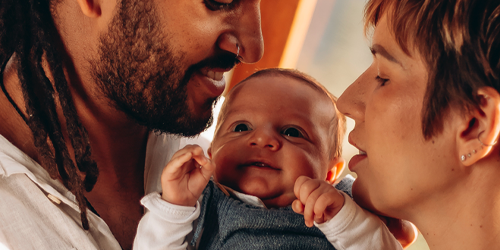We might think that tongue-tie is when we can’t speak due to nerves or embarrassment. However, in babies, it is another term for ankyloglossia, a condition where the tongue is anchored to the bottom of the mouth and can’t be moved freely. Expert London-based consultant otolaryngologist, Mr Anurag Jain, shares his expertise on the condition, how it presents and when it should be treated.
What is meant by tongue-tie?
Tongue-tie is seen in one in ten childbirths and refers to a condition whereby the tongue is stuck to the floor of the mouth, usually by a membrane. It is more commonly seen in boys but it can also be seen in girls. There are two types of tongue tie, anterior tongue tie, and posterior tongue tie. It can be divided into mild, moderate, and severe cases.
What causes babies to be tongue-tied?
Tongue-tie is a developmental abnormality, there is no clear cause.
What are the symptoms of tongue-tie?
Common symptoms of tongue-tie are:
- failure to latch onto the breast, causing difficulty in breastfeeding
- clicking sounds from the baby while feeding
- wind and bloating
- the child may take a long time to feed but always seems hungry and not getting enough milk
- inability to gain weight
- painful nipples for the mother
It may also cause problems with the pronunciation of certain words when the child grows up.
Is tongue-tie a serious condition? Is correction always required?
Tongue-tie is not serious. Of the children presenting with a tongue tie, excision (treatment) is necessary for only around half of the children.
How is tongue-tie corrected?
Tongue-tie is corrected by a short surgical procedure, which can be undertaken during the same appointment as the diagnosis in the clinic and without any anaesthetic for children under nine months old. It is like a haircut and hence does not hurt the child. The mother can then breastfeed the child straightaway, and improvement is often observed immediately.
For a child older than nine months, a general anaesthetic may be required to perform a tongue tie excision, so if your child is encountering any feeding problems, it is better to get them assessed as soon as possible. It is a very safe procedure with very few complications or risks in expert hands, therefore it is very important to get your child assessed and treated by an expert.







